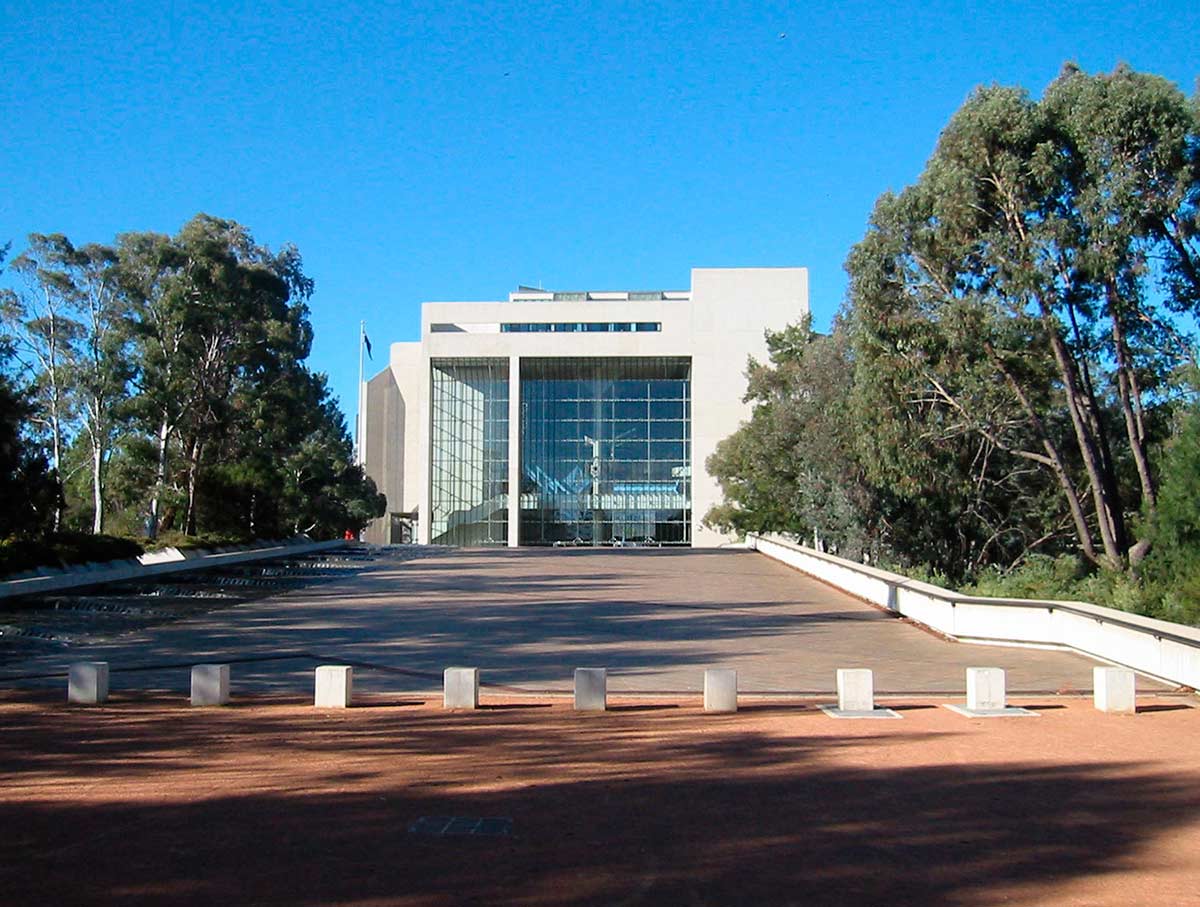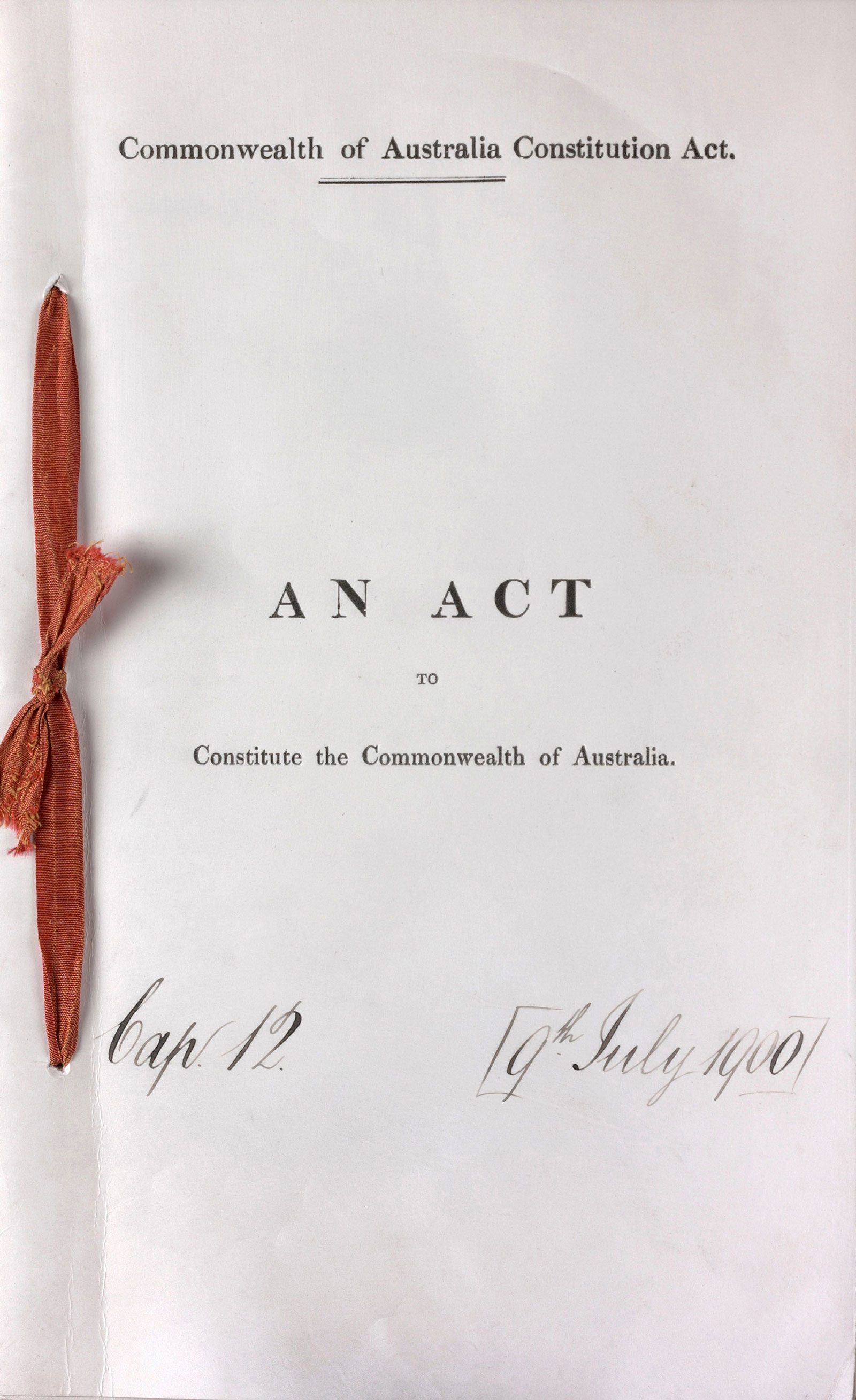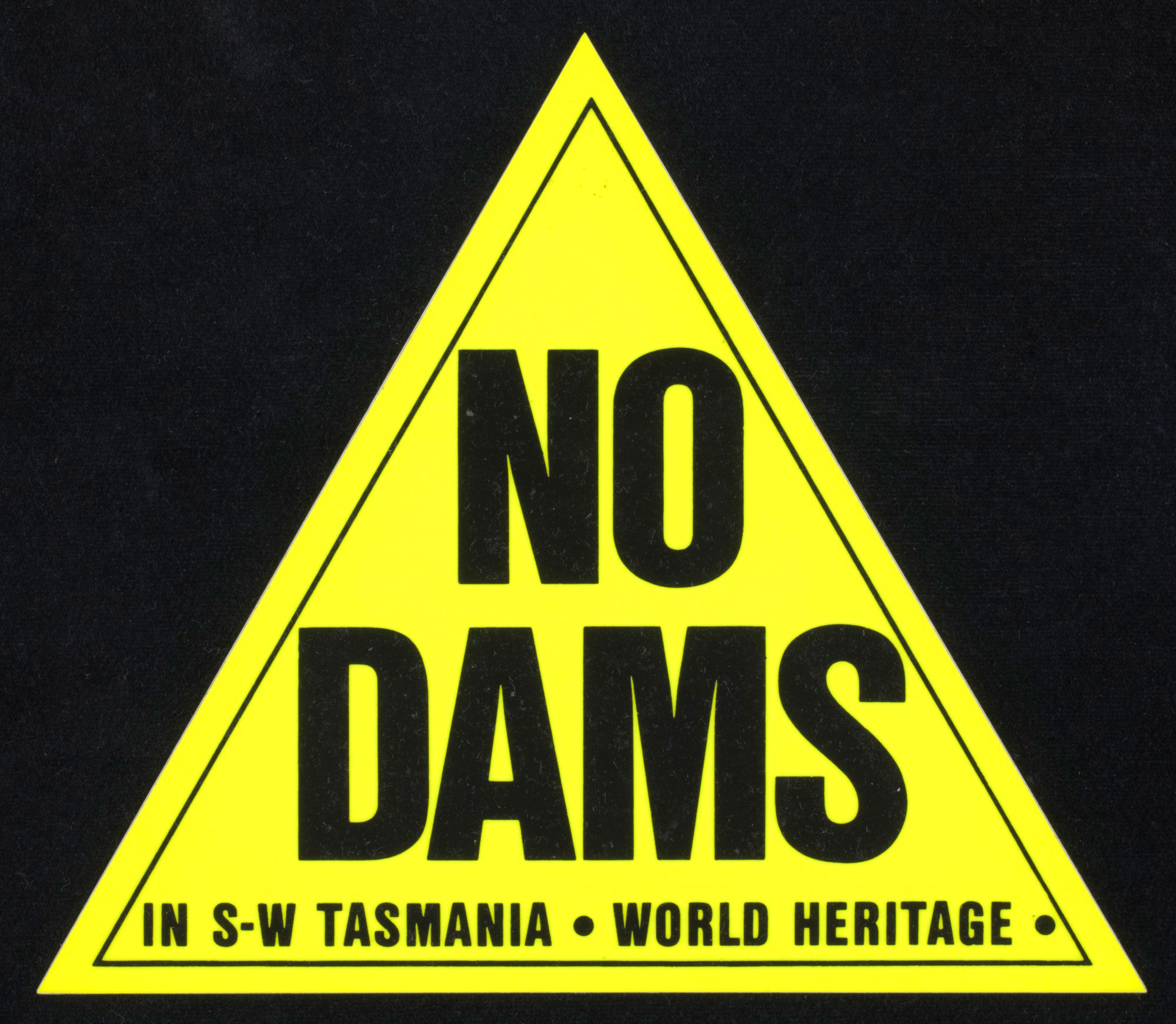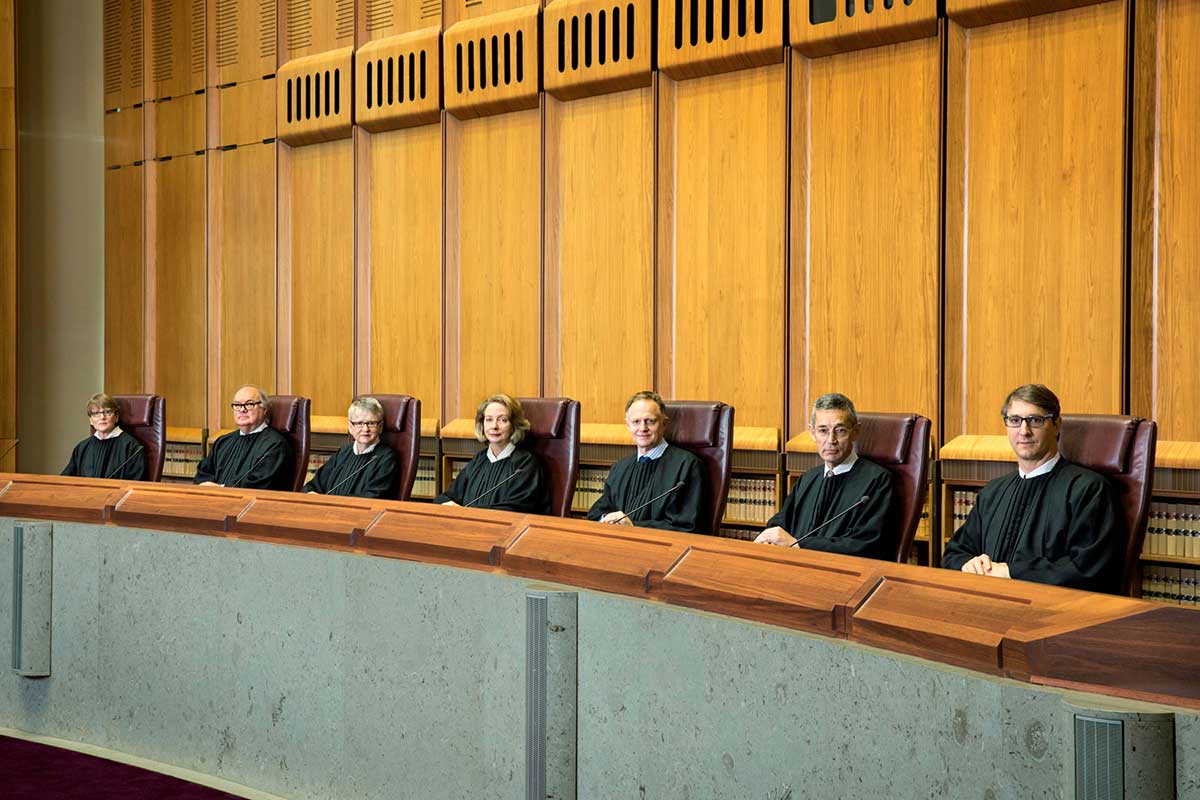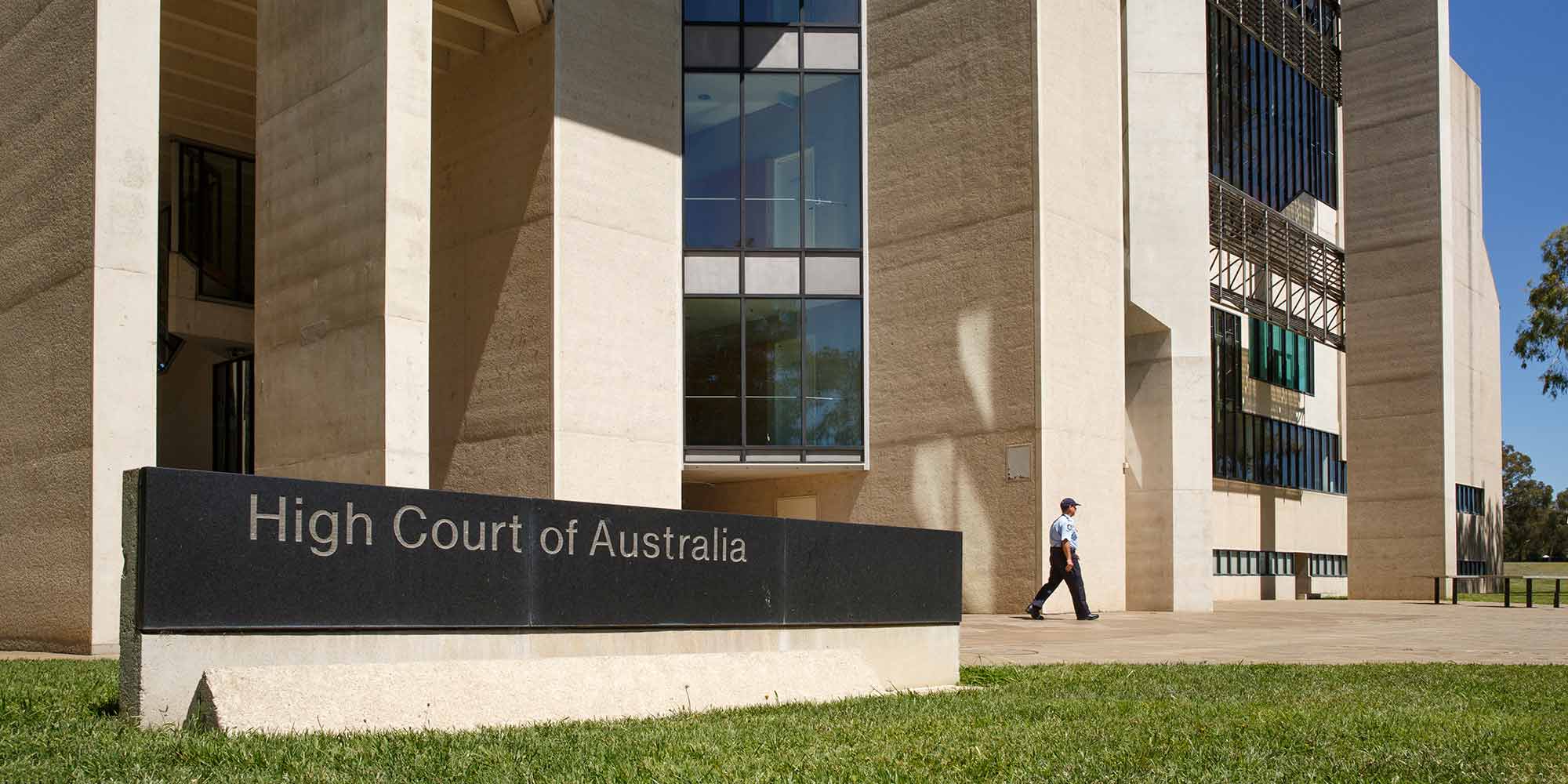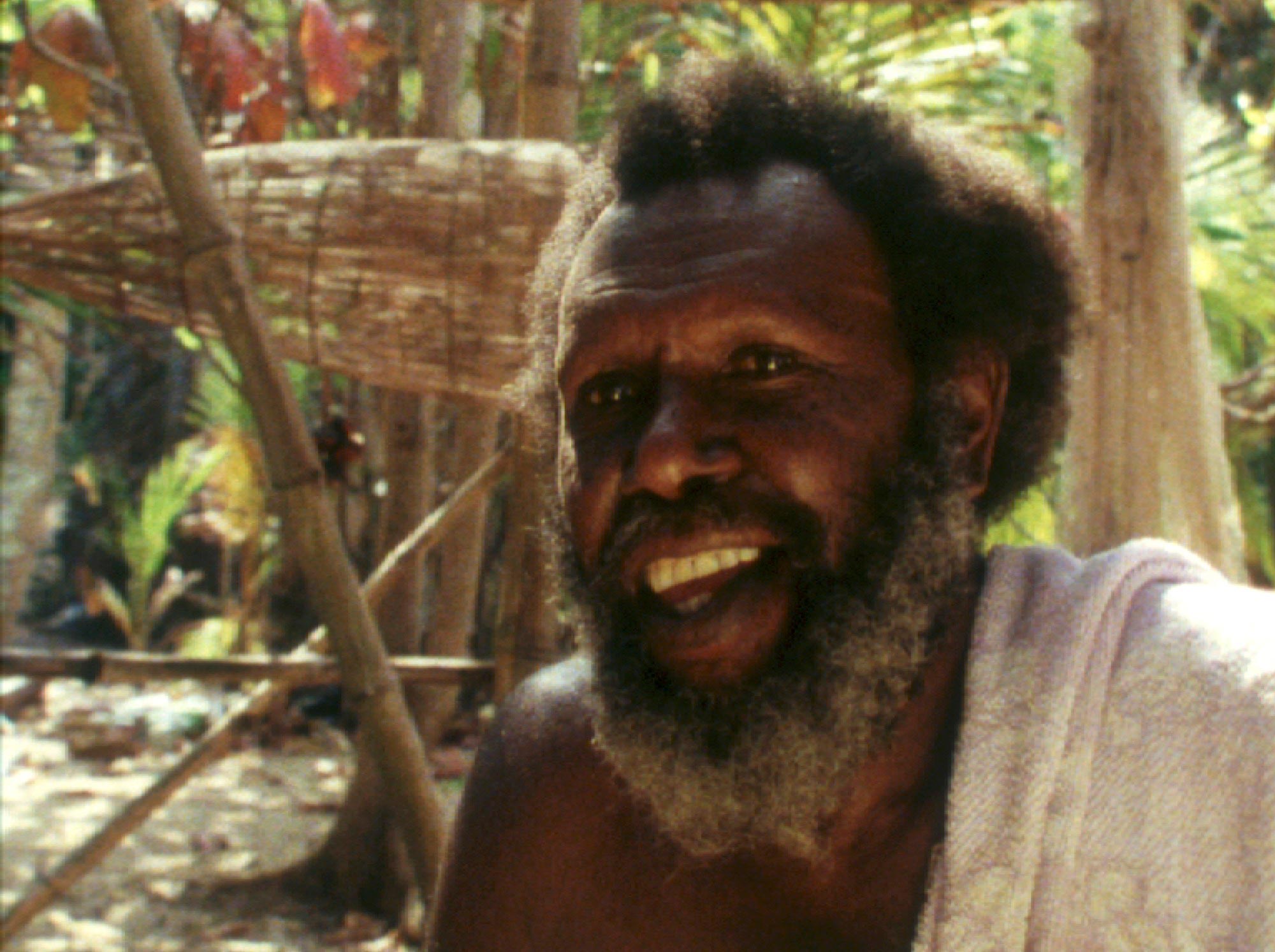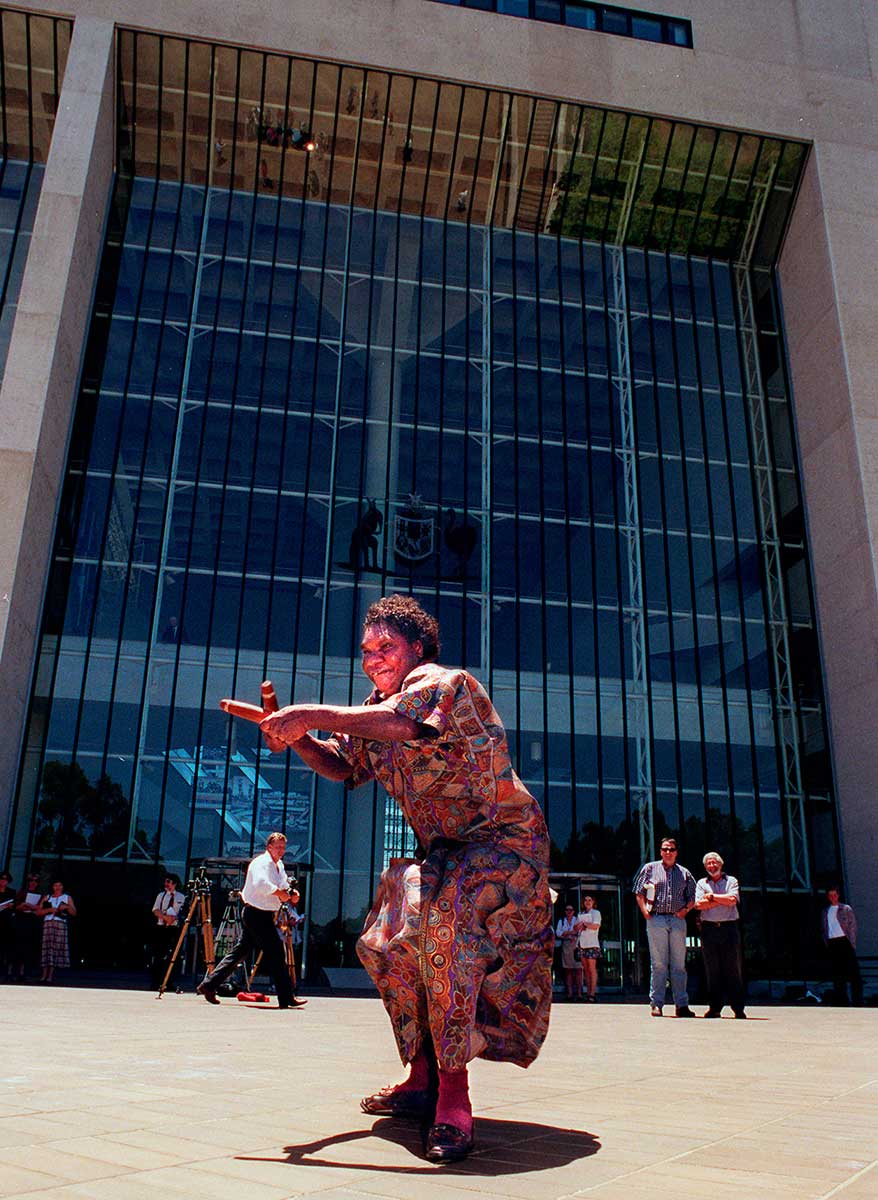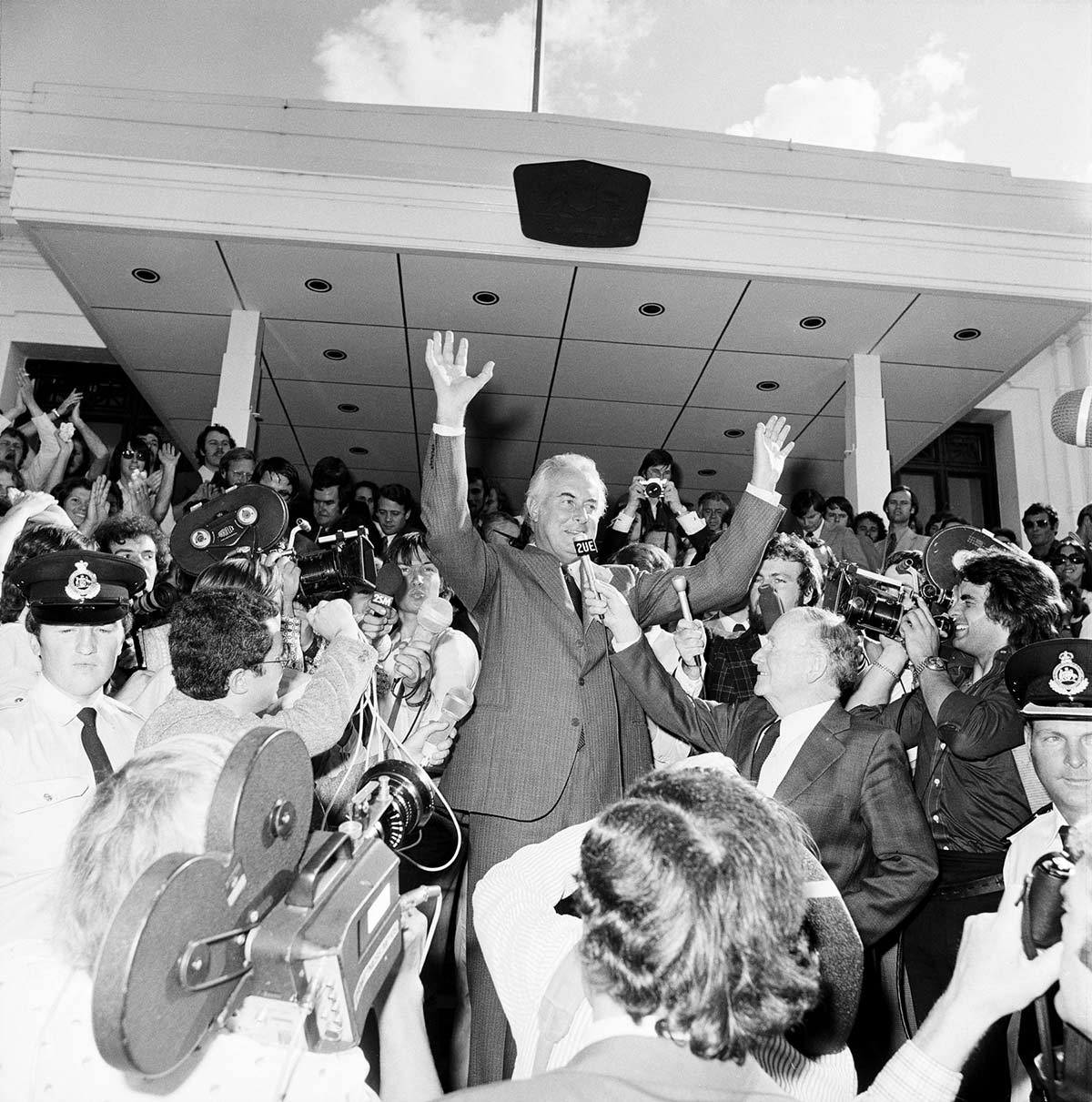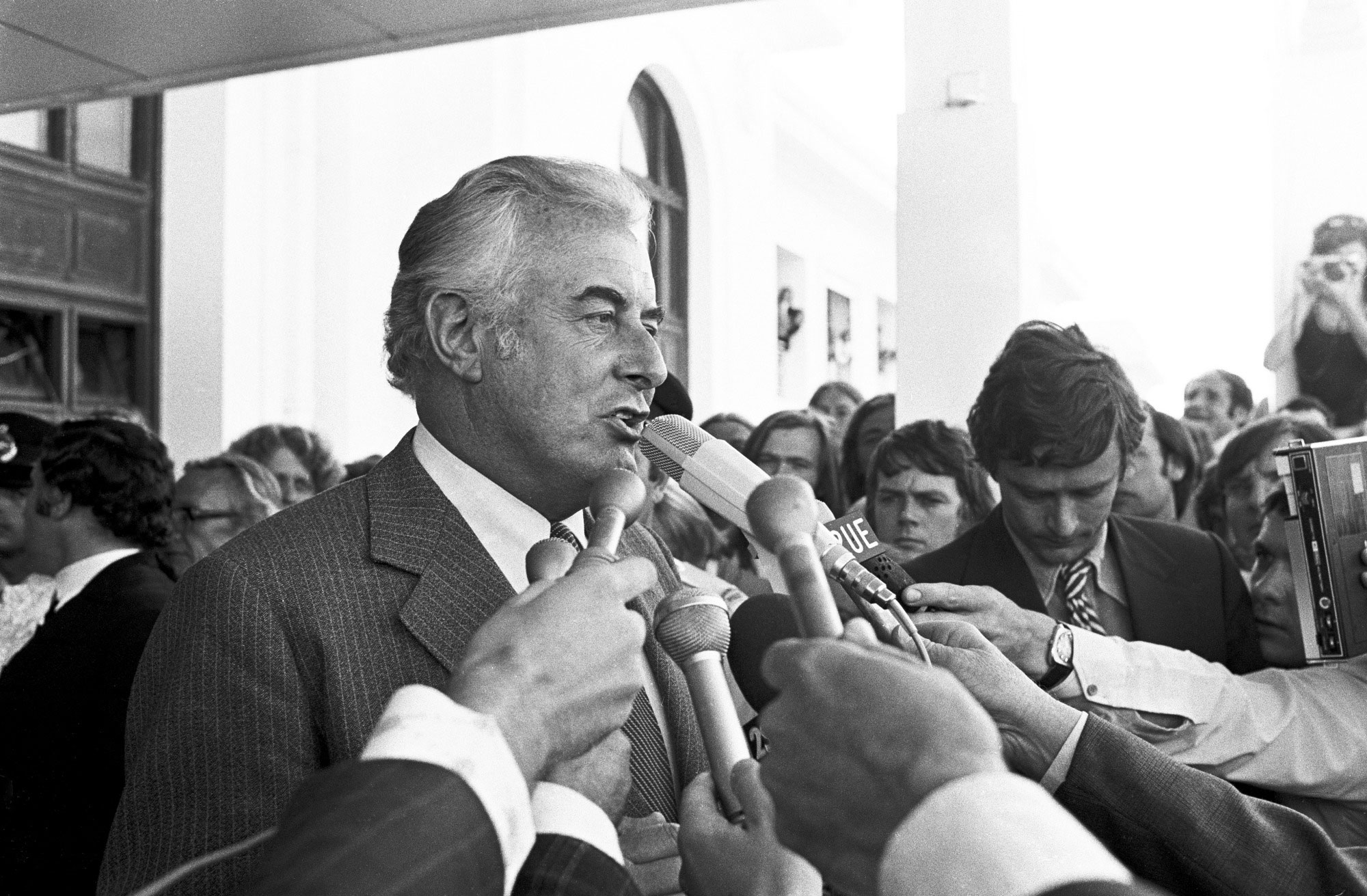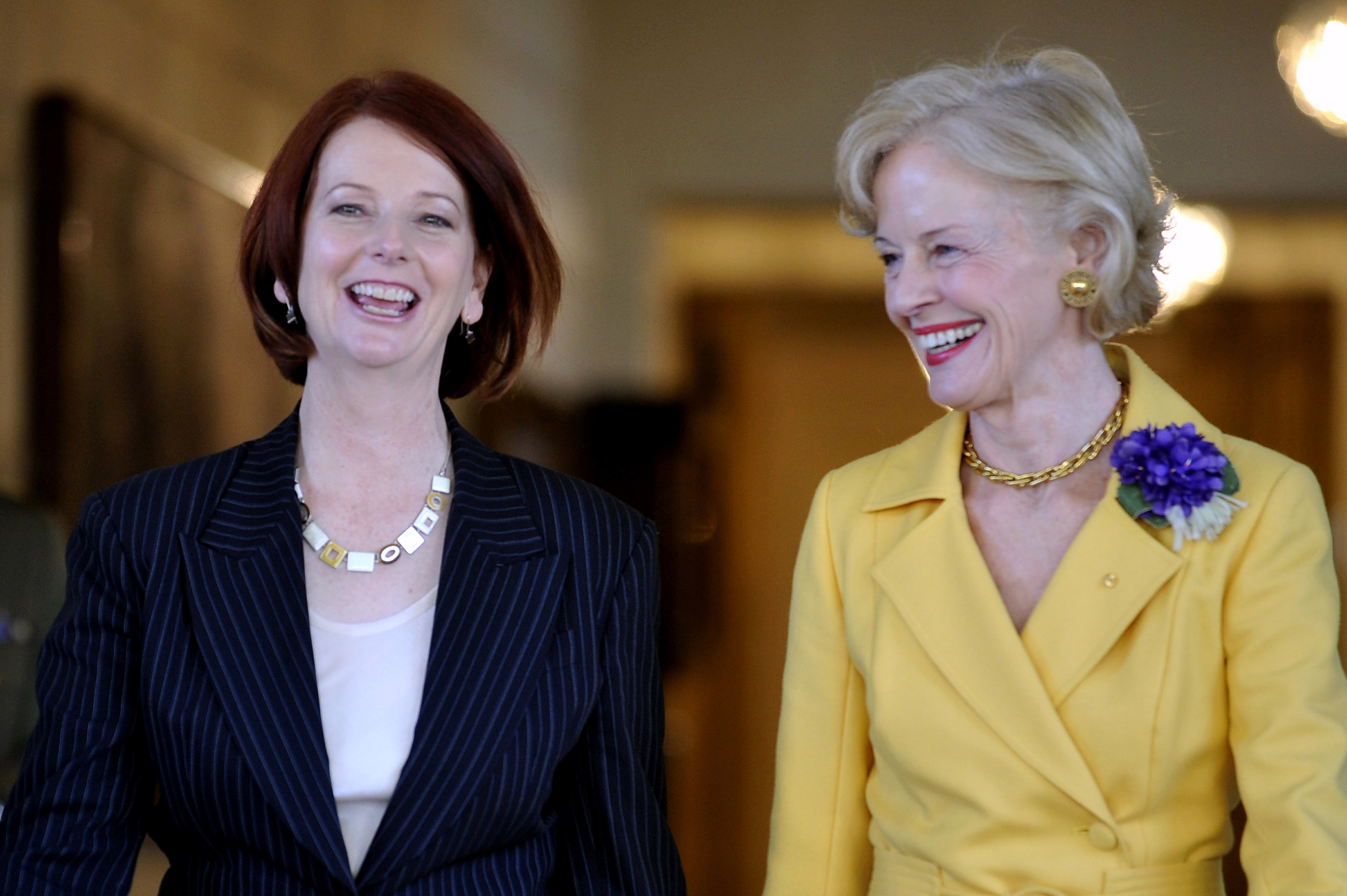Law and democracy Defining Moments
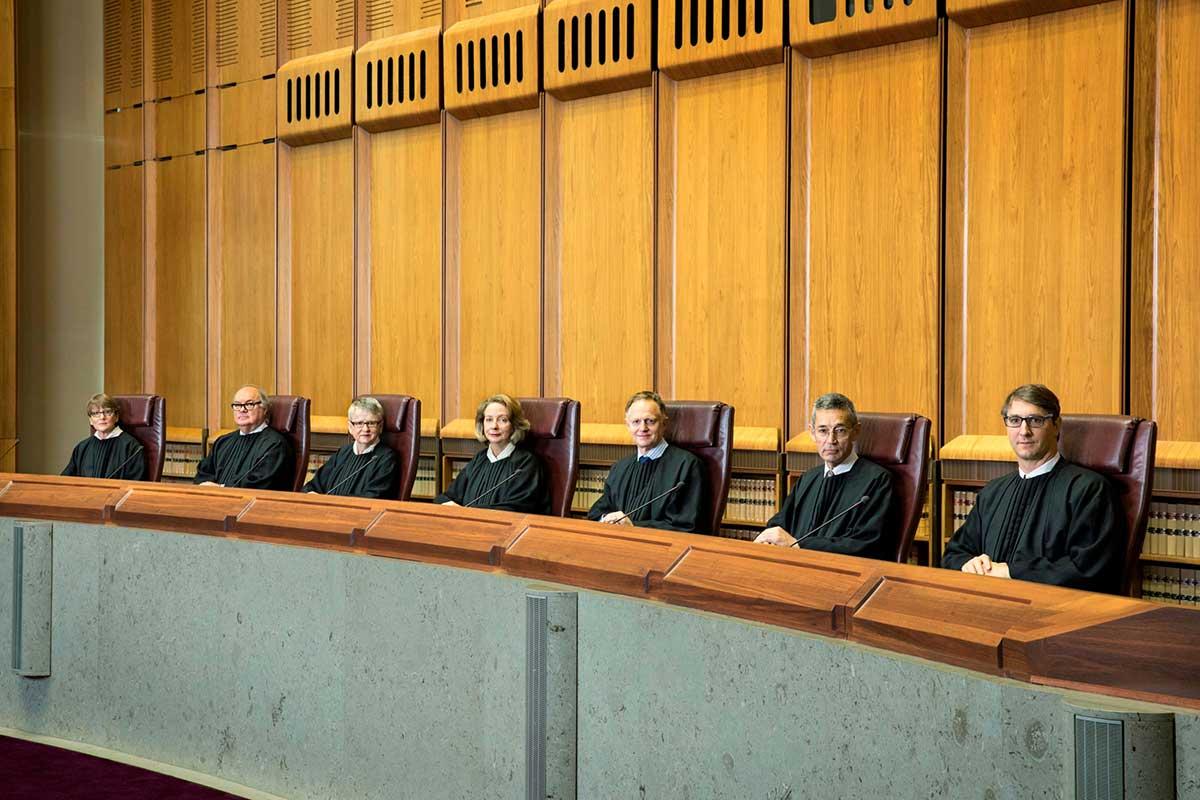
- Year level 10
- Investigations 5
- Activities 15
- Curriculum topic Law and democracy
1. Overview of the learning module
Introduction
This learning module provides resources and classroom activities for teachers to use in their Australian Curriculum — Civics and Citizenship Year 10 classrooms.
It supports the Civics and Citizenship knowledge and understanding requirements for aspects of Australia’s government and democracy, laws and citizens and citizenship, and diversity and identity:
- the Australian Government’s role and responsibilities at a global level
- the role of the High Court, including in interpreting the Constitution
- how Australia’s international legal obligations shape Australian law and government policies, including in relation to Aboriginal and Torres Strait Islander peoples
- the challenges to and ways of sustaining a resilient democracy and cohesive society.
It does this by providing a way for students to explore these ideas through a variety of case studies, including:
- the protests over the Franklin Dam
- the recognition of Native Title in the Mabo High Court case
- protests against the Vietnam War at the national moratorium
- the dismissal of the Whitlam Government by the Australian Governor-General
- the election and dismissal of the first female Prime Minister
- the awarding of the Nobel Peace Prize to an Australian organisation
- the treatment of and apology to the Australian Rules footballer, Adam Goodes.
It does this in a way that is engaging and interactive.
The investigations provide a rich digital resource for classroom use. They include contextual information, documents, images, scaffolded comprehension, analytical and extension questions, and individual, group and class activities. Using these materials and activities, students can explore aspects of the Year 10 knowledge and skills outcomes specified in the Australian Curriculum — Civics and Citizenship.
The learning module has been designed to draw on the National Museum of Australia’s Defining Moments in Australian History, together with some supplementary resources.
Module snapshot
The learning module contains:
This activity introduces students, through a simple diagram, to the role of the High Court and its place at the top of the Australian court hierarchy.
In these activities students investigate one of the most significant environmental cases in Australian history, the dispute over the building of the Franklin Dam in Tasmania. Students discover that while the Australian Constitution apparently excludes the Australian Government from making laws about water and the environment, the broad range of the Constitution’s ‘external affairs’ powers allow the Australian Government to legislate in areas such as these on certain occasions. The decision of the High Court in the 1982 case affirmed the legitimacy of the Australian Government in its use of this power to govern in areas that were usually state-only matters.
Students investigate one of the most important moments in Australian history, the role of the Mabo court case in creating the law of native title. The Mabo case also led to the creation of the Native Title Act 1993 and the Wik case. All three are important in helping students understand the changing nature of Indigenous land rights in Australia. At the end of their investigation students will understand how the non-elected High Court can create laws which are then implemented more broadly by the elected legislature.
Students are presented with a number of cases where people disagreed strongly, and protested openly and with passion, as part of their democratic right. They consider whether such protests weaken or harm the idea of Australia as a resilient democracy and a cohesive society, or whether the system is able to accommodate them and continue to function successfully.
Students complete their investigation by reflecting on the resilience of Australia's democracy and the importance of the legal system within it.
2. Student activities
Student activities
The Australian court hierarchy
‘Stretching’ the Australian Constitution
Courts making law
Balancing passion for change in a resilient democracy
Bringing it together
3. Relevant Defining Moments in Australian History
Defining Moments in Australian history that are relevant to the different inquiry questions in the national curriculum include:
|
1970 |
Moratoriums to protest Australian involvement in Vietnam War |
Investigation 4 |
|
1975 |
Investigation 4 |
|
|
1982 |
Protests against Franklin Dam in Tasmania lead to formation of the Greens |
Investigation 2 and 4 |
|
1992 |
Investigation 3 |
|
|
2010 |
Investigation 4 |
|
|
2017 |
The International Campaign to Abolish Nuclear Weapons wins the Nobel Prize for Peace |
Investigation 4 |
|
2019 |
Investigation 4 |
Simplified versions of many of the relevant Defining Moments are also available:
|
1982 |
Investigation 2 and 4 |
|
|
1992 |
Investigation 3 |
|
|
2010 |
‘A milestone of magnitude’ — First female prime minister and governor-general |
Investigation 4 |
|
2017 |
‘Working to safeguard the future’ — Campaign to Abolish Nuclear Weapons wins Nobel Prize |
Investigation 4 |
|
2019 |
‘I decided to stand up’ — Australian Football League apologises to Adam Goodes |
Investigation 4 |
4. Australian curriculum level and focus
Knowledge and understanding
- The Australian Government’s role and responsibilities at a global level (ACHCK091)
- The role of the High Court, including in interpreting the Constitution (ACHCK092)
- How Australia’s international legal obligations shape Australian law and government policies, including in relation to Aboriginal and Torres Strait Islander Peoples (ACHCK093)
- The challenges to and ways of sustaining a resilient democracy and cohesive society (ACHCK094)
Inquiry and skills
Students will have exercised a number of these learning skills:
Questioning and research
- Develop, select and evaluate a range of questions to investigate Australia's political and legal systems (ACHCS095)
- Identify, gather and sort information and ideas from a range of sources and references as appropriate (ACHCS096)
Analysis, synthesis and interpretation
- Critically analyse information and ideas from a range of sources in relation to civics and citizenship topics and issues (ACHCS097)
- Account for different interpretations and points of view (ACHCS098)
Problem-solving and decision-making
- Recognise and consider multiple perspectives and ambiguities, and use strategies to negotiate and resolve contentious issues (ACHCS099)
- Use democratic processes to reach consensus on a course of action relating to a civics or citizenship issue and plan for that action (ACHCS100)
Communication and reflection
Present evidence-based civics and citizenship arguments using subject-specific language (ACHCS101)
Reflect on their role as a citizen in Australian, regional and global contexts (ACHCS102)
Interdisciplinary thinking
Students will have engaged with several of the concepts of:
- significance
- continuity and change
- cause and effect
- place and space
- interconnections
- roles, rights and responsibilities
- perspectives and action.
Cross-curriculum priorities
Students will have been involved in additional learning about some aspects of:
- Aboriginal and Torres Strait Islander societies
- Asia and the Pacific
- sustainability.
Source: The Australian Curriculum Humanities and Social Sciences, v8.3, December 2016, accessed 1 February 2019
5. Civics and Citizenship outcomes matrix
All case studies in the learning module have been designed to help students develop a number of the knowledge and skills outcomes specified in Australian Curriculum — Civics and Citizenship. At the end of each case study teachers could use this matrix to help guide student discussion about what they have achieved from each investigation. The matrix is suitable to be used from Years 5–10, but with teachers guiding the discussion as appropriate to the particular class. It could also be used for assessment purposes.
|
Outcome |
Elaboration or explanation |
Applying this to each case study |
|---|---|---|
|
KNOWING |
Knowing the key factual elements of government and democracy, laws and citizens, and citizenship, diversity and identity. |
Do you know what the key facts are? |
|
UNDERSTANDING |
Being able to explain how and why these operate in the way they do. |
Do you understand how systems work? |
|
QUESTIONING |
Asking questions that reveal knowledge and understanding. |
Have you asked about all the aspects you need to know? |
|
RESEARCHING |
Locating relevant information. |
Are you gathering the best, most accurate and balanced information and arguments? |
|
ANALYSING |
Critically assessing information and ideas. |
Are you testing to detect bias, propaganda, inaccuracy and incompleteness? |
|
SYNTHESISING |
Bringing information together into a coherent whole. |
Are you re-organising information in a thorough, logical and clear way? |
|
INTERPRETING |
Developing your own findings. |
Are you putting forward your own ideas and acknowledging different perspectives and values? |
|
PROBLEM-SOLVING |
Using information to reach a conclusion. |
Are you using all available information to reach a solution? |
|
DECISION-MAKING |
Choosing between different possibilities. |
Have you explored all the strengths and weaknesses of options and reached the best possible decision? |
|
COMMUNICATING |
Presenting information and ideas clearly and well. |
Is your presentation clear, logical, concise and persuasive? |
|
REFLECTING |
Applying knowledge to understand the present and possible futures of society. |
Are you applying your knowledge and understanding in a way that explains the characteristics of the present situation and takes account of possible changes? |
6. Learning at the National Museum of Australia
Enjoying our online teaching resources? Why not check out what else we have to offer?
We run onsite school programs, digital excursions and teacher professional learning programs.
Discover more about defining moments in Australian history through these curriculum-linked learning activities.






